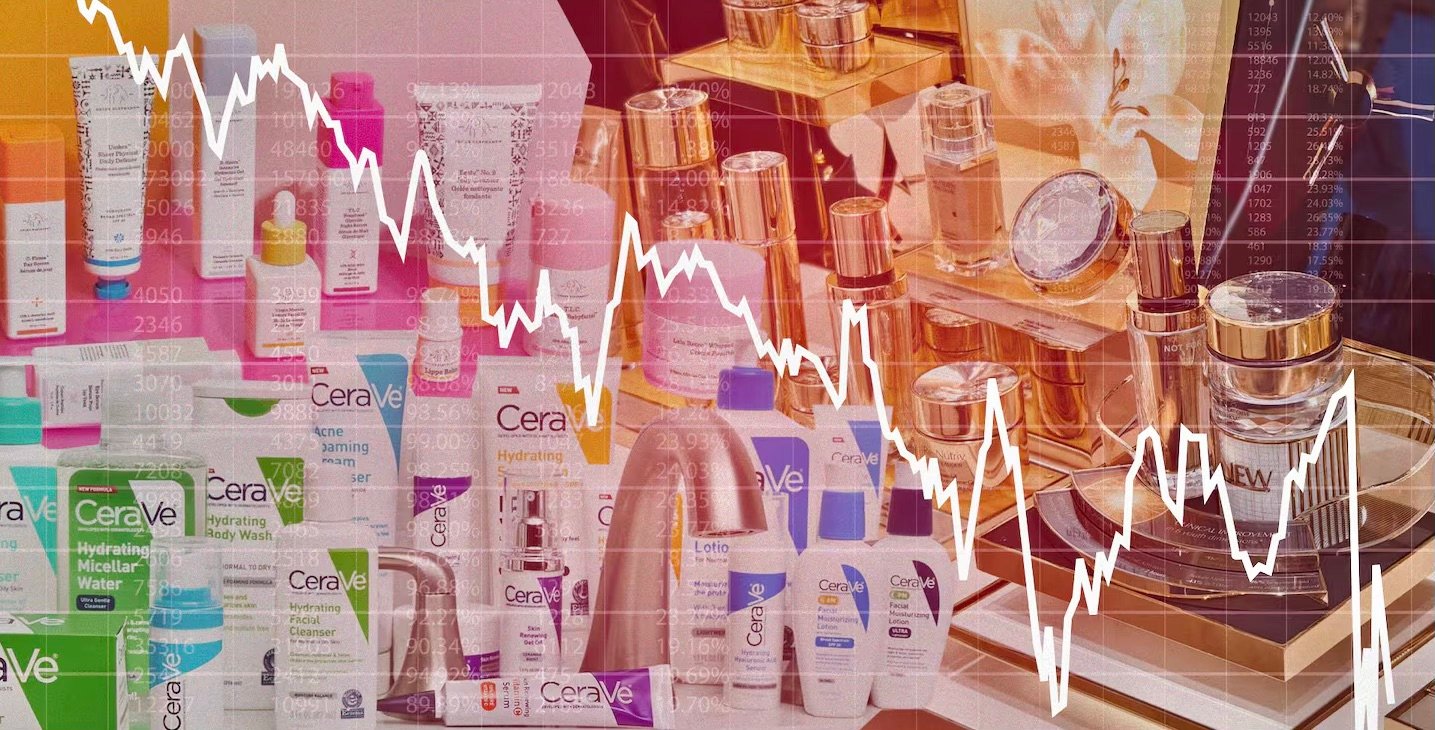The beauty industry has long been considered a recession-proof market, with consumers continuing to shell out big bucks for skincare, haircare, and makeup products even in times of economic uncertainty. But recent sales reports from the four biggest beauty conglomerates – L’Oréal, Estée Lauder, Procter & Gamble, and Unilever – have revealed a shocking slowdown in the industry. Even once-white-hot brands like Cerave and Drunk Elephant are feeling the pinch, leaving many to wonder: what’s behind the decline, and how can brands recover?
One major factor contributing to the slowdown is the sheer saturation of the beauty market. In recent years, the industry has experienced an explosion of new brands and products, making it increasingly difficult for consumers to discern what’s truly innovative and effective. As a result, many consumers are experiencing fatigue, with even once-loyal customers beginning to question the value of their beauty purchases.
Another key factor is the changing behavior of beauty consumers. In recent years, there has been a significant shift towards more mindful and sustainable consumption, with many consumers opting for fewer, higher-quality products that align with their values. This shift has left many beauty brands scrambling to adapt, as they struggle to reconcile their traditional business models with the changing demands of their customers.
The decline of social media’s influence on beauty purchasing decisions is also playing a role in the slowdown. While social media platforms like Instagram and TikTok were once a major driver of beauty sales, many consumers are now becoming increasingly skeptical of the influencer marketing model. With the rise of “authenticity” and “transparency” as major beauty trends, consumers are seeking out more genuine and trustworthy sources of information – and social media influencers are no longer seen as the most credible or reliable sources.
So, what can beauty brands do to recover from this slowdown? According to industry experts, the key to success lies in agility and adaptability. Brands must be willing to pivot quickly in response to changing consumer demands and preferences, and to invest in new technologies and innovations that can help them stay ahead of the curve. This might involve exploring new channels and platforms for marketing and sales, or investing in sustainability and social responsibility initiatives that align with the values of today’s conscious consumers.
In addition to agility and adaptability, beauty brands must also be willing to adjust their expectations and redefine what success looks like in this new landscape. Gone are the days of explosive growth and sky-high profit margins; instead, brands must focus on building long-term relationships with their customers, and on creating value that extends beyond the mere sale of a product. By taking a more nuanced and holistic approach to beauty, brands can build trust, loyalty, and advocacy among their customers – and ultimately, drive growth and profitability in a rapidly changing market.
As the beauty industry continues to navigate this challenging new landscape, one thing is clear: the old rules no longer apply. Brands must be willing to think creatively, take risks, and invest in new ideas and innovations if they hope to succeed. By doing so, they can not only recover from the current slowdown but also position themselves for long-term growth and success in a rapidly evolving market.
In conclusion, the beauty industry’s slowdown is a wake-up call for brands to adapt and evolve in response to changing consumer demands and preferences. By prioritizing agility, adaptability, and authenticity, brands can build trust, loyalty, and advocacy among their customers – and ultimately, drive growth and profitability in a rapidly changing market.
The impact of the beauty industry’s slowdown on the global economy cannot be overstated. As one of the largest and most lucrative industries in the world, the beauty industry plays a significant role in driving economic growth and job creation. As brands navigate this challenging new landscape, it’s essential that they prioritize innovation, sustainability, and social responsibility – not just to drive growth and profitability, but also to ensure the long-term health and viability of the industry as a whole.
In the end, the beauty industry’s slowdown is an opportunity for brands to rethink their approach and prioritize the values and principles that truly matter to their customers. By doing so, they can not only recover from the current slowdown but also build a stronger, more sustainable, and more resilient industry for the future.
Source: Africa Publicity








